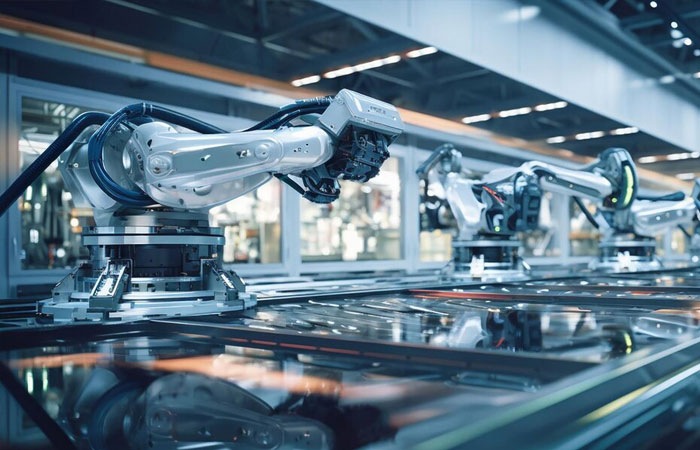Industry 4.0 has ushered in a new era of connectivity and automation, revolutionizing traditional manufacturing practices. This paradigm shift towards smart factories leverages cutting-edge technologies such as IoT (Internet of Things), AI (Artificial Intelligence), digital twin technology, and data analytics to enhance efficiency, productivity, and quality. Here, we delve into the pivotal role of these Industry 4.0 innovations in optimizing die-mould machining processes and paving the way for future advancements.
IoT and Real-time Monitoring
IoT-enabled sensors and devices are instrumental in transforming conventional die-mould machining operations into interconnected systems. These sensors gather real-time data on machine performance, tooling conditions, and environmental factors. By analyzing this data, manufacturers gain valuable insights into production metrics such as cycle times, downtime events, and energy consumption. Real-time monitoring allows for proactive maintenance, minimizing unplanned downtime and optimizing machine utilization. Moreover, IoT facilitates remote monitoring and control, enabling operators to oversee operations from anywhere, enhancing operational flexibility and responsiveness.
Artificial Intelligence (AI) in Predictive Analytics
AI algorithms are revolutionizing predictive maintenance and process optimization in die-mould machining. Machine learning models analyze vast datasets collected by IoT sensors to predict equipment failures before they occur. By monitoring patterns and anomalies in machine behavior, AI-driven analytics identify potential issues, recommend preventive actions, and optimize maintenance schedules. This proactive approach reduces downtime, extends equipment lifespan, and enhances overall reliability. Furthermore, AI algorithms optimize machining processes by continuously learning from historical data, refining toolpath strategies, and adjusting parameters to achieve optimal performance and precision.
Digital Twin Technology: Virtual Replication for Optimization
Digital twins create virtual replicas of physical machines and processes, offering a simulated environment to test and refine operations. In die-mould machining, digital twins replicate tooling configurations, machining sequences, and material interactions. Engineers can simulate different scenarios, assess the impact of design modifications, and predict performance outcomes before physical implementation. This virtual replication enhances design validation, accelerates innovation cycles, and reduces time-to-market for new products. By coupling real-time data from IoT sensors with digital twins, manufacturers achieve a holistic view of production processes, enabling continuous improvement and adaptive manufacturing strategies.
Data Analytics for Continuous Improvement
Data analytics play a pivotal role in leveraging the wealth of information generated by IoT sensors and AI algorithms. By aggregating, analyzing, and visualizing data, manufacturers gain actionable insights into operational trends, quality metrics, and production bottlenecks. Advanced analytics tools enable root cause analysis, identify optimization opportunities, and support data-driven decision-making. Continuous improvement initiatives based on data analytics drive efficiency gains, enhance product quality, and align manufacturing processes with customer expectations. Moreover, data-driven insights foster innovation by uncovering new opportunities for process refinement and technology integration.
The integration of Industry 4.0 technologies in die-mould machining represents a paradigm shift towards smarter, more agile manufacturing environments. By harnessing IoT, AI, digital twin technology, and data analytics, manufacturers enhance operational efficiency, optimize production processes, and drive sustainable growth. As Industry 4.0 continues to evolve, embracing these advanced technologies will be crucial in fostering innovation, maintaining competitive advantage, and unlocking new possibilities in die-mould machining.



